#Product Development & Licensing in india
Explore tagged Tumblr posts
Text
Product Development & Licensing in India: Innovate and Expand
Frontro Pharma accelerates Product Development & Licensing in India competitive pharmaceutical landscape, ensuring your innovations meet stringent regulatory standards. Our expertise in new product development and regulatory approvals positions your company for success. We simplify the complexities of product licensing in India, facilitating strategic expansion and compliance with Indian regulations. Our third-party manufacturing services optimize production without new facilities, ensuring efficiency and regulatory compliance. Comprehensive plant audits by Frontro Pharma ensure your operations meet Indian standards, instilling confidence in successful approvals. Partner with us to innovate and expand in India’s dynamic pharmaceutical market.
#pharma regulatory services consultants in India#Regulatory Services For New Product Development & Licensing#Product Development & Licensing#Product Development & Licensing in india
0 notes
Text
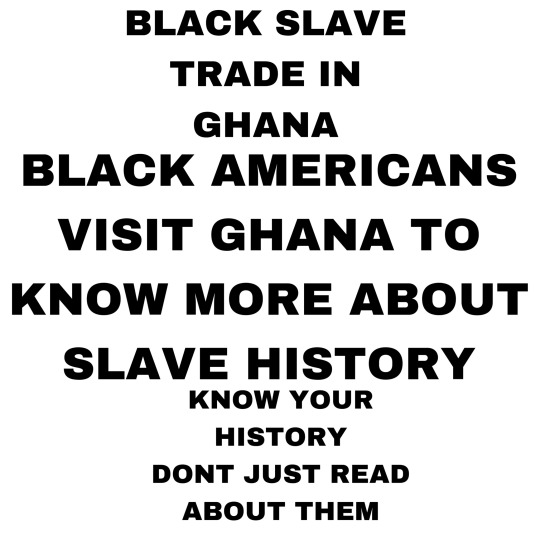
Black Americans should visit Ghana
To know more about black slave trade in Ghana

Monuments of shame
Cape Coast Castle - now a World Heritage Site - is one of about forty forts in Ghana where slaves from as far away as Burkina Faso and Niger were imprisoned. This former slave fortress could hold about 1,500 slaves at a time before they were loaded onto ships and sold into slavery in the New World in the Americas and the Caribbean.

Male captives who revolted or were deemed insubordinate ended up in the condemned cells - a pitch-black room where slaves were left to die in the oppressive heat without water, food or daylight.Rebellious women were beaten and chained to cannon balls in the courtyard

Built in 1482, Elmina Castle on Ghana's Cape coast is the earliest European structure erected in sub-Saharan Africa. Originally Portugese, it was later captured by the Dutch, who used it as a base for the Dutch slave trade with Brazil and the Caribbean. Under the flag of the Dutch West Indies Company, around 30,000 slaves a year passed through Elmina until 1814 when the Dutch abolished slavery.
The Portuguese position on the Gold Coast remained secure for almost a century. During that time, Lisbon leased the right to establish trading posts to individuals or companies that sought to align themselves with the local chiefs and to exchange trade goods both for rights to conduct commerce and for slaves whom the chiefs could provide. During the seventeenth and eighteenth centuries, adventurers--first Dutch, and later English, Danish, and Swedish-- were granted licenses by their governments to trade overseas. On the Gold Coast, these European competitors built fortified trading stations and challenged the Portuguese. Sometimes they were also drawn into conflicts with local inhabitants as Europeans developed commercial alliances with local chiefs.
The principal early struggle was between the Dutch and the Portuguese. With the loss of Elmina in 1642 to the Dutch, the Portuguese left the Gold Coast permanently. The next 150 years saw kaleidoscopic change and uncertainty, marked by local conflicts and diplomatic maneuvers, during which various European powers struggled to establish or to maintain a position of dominance in the profitable trade of the Gold Coast littoral. Forts were built, abandoned, attacked, captured, sold, and exchanged, and many sites were selected at one time or another for fortified positions by contending European nations.
Both the Dutch and the British formed companies to advance their African ventures and to protect their coastal establishments. The Dutch West India Company operated throughout most of the eighteenth century. The British African Company of Merchants, founded in 1750, was the successor to several earlier organizations of this type. These enterprises built and manned new installations as the companies pursued their trading activities and defended their respective jurisdictions with varying degrees of government backing. There were short-lived ventures by the Swedes and the Prussians. The Danes remained until 1850, when they withdrew from the Gold Coast. The British gained possession of all Dutch coastal forts by the last quarter of the nineteenth century, thus making them the dominant European power on the Gold Coast.
During the heyday of early European competition, slavery was an accepted social institution, and the slave trade overshadowed all other commercial activities on the West African coast. To be sure, slavery and slave trading were already firmly entrenched in many African societies before their contact with Europe. In most situations, men as well as women captured in local warfare became slaves. In general, however, slaves in African communities were often treated as junior members of the society with specific rights, and many were ultimately absorbed into their masters' families as full members. Given traditional methods of agricultural production in Africa, slavery in Africa was quite different from that which existed in the commercial plantation environments of the New World.
Another aspect of the impact of the trans-Atlantic slave trade on Africa concerns the role of African chiefs, Muslim traders, and merchant princes in the trade. Although there is no doubt that local rulers in West Africa engaged in slaving and received certain advantages from it, some scholars have challenged the premise that traditional chiefs in the vicinity of the Gold Coast engaged in wars of expansion for the sole purpose of acquiring slaves for the export market. In the case of Asante, for example, rulers of that kingdom are known to have supplied slaves to both Muslim traders in the north and to Europeans on the coast. Even so, the Asante waged war for purposes other than simply to secure slaves. They also fought to pacify territories that in theory were under Asante control, to exact tribute payments from subordinate kingdoms, and to secure access to trade routes--particularly those that connected the interior with the coast.
It is important to mention, however, that the supply of slaves to the Gold Coast was entirely in African hands. Although powerful traditional chiefs, such as the rulers of Asante, Fante, and Ahanta, were known to have engaged in the slave trade, individual African merchants such as John Kabes, John Konny, Thomas Ewusi, and a broker known only as Noi commanded large bands of armed men, many of them slaves, and engaged in various forms of commercial activities with the Europeans on the coast.
The volume of the slave trade in West Africa grew rapidly from its inception around 1500 to its peak in the eighteenth century. Philip Curtin, a leading authority on the African slave trade, estimates that roughly 6.3 million slaves were shipped from West Africa to North America and South America, about 4.5 million of that number between 1701 and 1810. Perhaps 5,000 a year were shipped from the Gold Coast alone. The demographic impact of the slave trade on West Africa was probably substantially greater than the number actually enslaved because a significant number of Africans perished during slaving raids or while in captivity awaiting transshipment. All nations with an interest in West Africa participated in the slave trade. Relations between the Europeans and the local populations were often strained, and distrust led to frequent clashes. Disease caused high losses among the Europeans engaged in the slave trade, but the profits realized from the trade continued to attract them.
The growth of anti-slavery sentiment among Europeans made slow progress against vested African and European interests that were reaping profits from the traffic. Although individual clergymen condemned the slave trade as early as the seventeenth century, major Christian denominations did little to further early efforts at abolition. The Quakers, however, publicly declared themselves against slavery as early as 1727. Later in the century, the Danes stopped trading in slaves; Sweden and the Netherlands soon followed.
The importation of slaves into the United States was outlawed in 1807. In the same year, Britain used its naval power and its diplomatic muscle to outlaw trade in slaves by its citizens and to begin a campaign to stop the international trade in slaves. These efforts, however, were not successful until the 1860s because of the continued demand for plantation labor in the New World.
Because it took decades to end the trade in slaves, some historians doubt that the humanitarian impulse inspired the abolitionist movement. According to historian Walter Rodney, for example, Europe abolished the trans-Atlantic slave trade only because its profitability was undermined by the Industrial Revolution. Rodney argues that mass unemployment caused by the new industrial machinery, the need for new raw materials, and European competition for markets for finished goods are the real factors that brought an end to the trade in human cargo and the beginning of competition for colonial territories in Africa. Other scholars, however, disagree with Rodney, arguing that humanitarian concerns as well as social and economic factors were instrumental in ending the African slave trade.
#life#culture#black history#blm blacklivesmatter#history#animals#architecture#aesthetic#black community#anime and manga#blacklivesmatter#humiliation slave
155 notes
·
View notes
Text
AMC Picks Up Captain Nemo Origin Series ‘Nautilus’ From Disney, Plans to Air Show in 2024

The Captain Nemo origin story series “Nautilus” lives on, with AMC Networks licensing the U.S. and Canadian linear and streaming rights to the live-action series from Disney Entertainment.
The 10-episode show was originally slated to air on Disney+, but it was announced back in August that the show was not going forward at the streamer as part of a wide-ranging cost cutting initiative at the Mouse House.
AMC and AMC+ will now air the show as a special television event in 2024, with an exact premiere date to be announced later. Inspired by Jules Vernes’ “Twenty Thousand Leagues Under the Sea,” the show will explore the early life of Captain Nemo, who is played by Shazad Latif. The character is described as “an Indian Prince robbed of his birthright and family, a prisoner of the East India Mercantile Company and a man bent on revenge against the forces that have taken everything from him.”
“’Nautilus’ is a big, sweeping drama that is sure to appeal to fans of our Anne Rice Immortal Universe and other buzzy and fan-forward series like ‘Orphan Black: Echoes,’” said Ben Davis, executive vice president of original programming for AMC Networks and AMC Studios. “We are looking forward to bringing it to AMC+ and AMC as a special television event next year.”
Along with Latif, the cast of the show includes Georgia Flood, Thierry Fremont and Céline Menville, with guest appearances from Richard E. Grant, Anna Torv and Noah Taylor.
The series was developed and produced by Moonriver TV’s Xavier Marchand and Seven Stories’ Anand Tucker. James Dormer serves as writer and executive producer. Johanna Devereaux, Chris Loveall, Colleen Woodcock, and Daisy Gilbert also executive produce. Cameron Welsh serves as producer. Michael Matthews was the lead director.
“I am hugely excited that the efforts of everyone involved in the making of the show will be seen on such a prestigious network,” said Dormer.
“We are so thrilled to present the epic adventures of Captain Nemo and his legendary submarine The Nautilus alongside the other incredible AMC universes,” said Marchand and Tucker. “The series will take viewers on a breathtaking journey with Nemo and his crew, battling terrifying creatures and the dark forces of the British Empire.”
“Nautilus” is distributed by Disney Entertainment and acknowledges the support from the Australian Government’s Location Incentive and from the Queensland Government via Screen Queensland’s Production Attraction Strategy.
Source: The Variety
93 notes
·
View notes
Photo










Innocenti C coupé
Born in Piscaia, Tuscany in 1891, Ferdinandi Innocenti started his business career by establishing a hardware store in Rome. The business grew, and in 1920 Ferdinandi established a factory in northern Italy in Milan, in the Lambrate district. The factory produced everything from soccer stands to railways, and the reconstruction boom in Rome in particular boosted demand.The factories suffered in the Second World War, but Innocenti had kept them up and running productively for wartime needs even through difficult times. After the war, the factories also started producing for the vehicle industry, inspired by military motorcycles. Enrico Piaggio had introduced the Vespa in 1946, and Innocenti introduced their first scooter, Lambro River by Lambretta, just a year later. The scooters became a huge success and were manufactured under license in Spain, India, Argentina, Germany, France and Brazil.At the end of the 1950s, another economic boom followed in Italy, and the working class could for the first time get their own car, such as the Fiat 500. Ferdinando's son Luigi had taken over as vice president of the company and began to explore the possibilities of manufacturing passenger cars. A cooperation partner was first found in Germany, and a small Iseria passenger car was born in cooperation with Goggomobil. However, production was very marginal until the early 1960s when Innocenti entered into a cooperation agreement with the British BMC and began to produce Innocenti Austins and Mini Minors under license.Innocent's first in-house model followed just a year later when it introduced the Austin-Healey Sprite-based 950 Spider. Encouraged by Innocenti’s first sports model, the collaboration with Ferrari also began, and two 186 GT prototypes equipped with the V6 from Maranello were completed, until Ferrari decided to bury the project in 1966.
Innocenti was not discouraged, and developed their own small Coupé model, which was presented later in the same year. Ghia used the earlier Spider model as the basis for the design, and Sergio Sartorelli, who has made a name for himself with models like the Karmann Ghia Type 34 and the Fiat 2300 S, was given the main responsibility for the design. The wheelbase was extended and the rear of the car was completely redesigned. Special attention was paid to the quality of the materials in the interior, and the GT spirit was also exuded by dashboard including five gauges, the oil pressure gauge was straight from the Ferrari 250 GTE. New Innocenti C was powered by BMC's A-series 1098cc engine, producing 58bhp with two SU carburettors – enough for a coupe with a curb weight of just 695kg.
#Innocenti C coupé#Ferdinandi Innocenti#Enrico Piaggio#Goggomobil#British BMC#Ferrari#186 GT#Fiat 2300 S#Ferrari 250 GTE#Fiat 500
124 notes
·
View notes
Note
The FN P90 is a personal defense weapon chambered for the 5.7×28mm cartridge, also classified as a submachine gun, designed and manufactured by FN Herstal in Belgium.[9][10][11] Created in response to NATO requests for a replacement for 9×19mm Parabellum firearms, the P90 was designed as a compact but powerful firearm for vehicle crews, operators of crew-served weapons, support personnel, special forces, and counter-terrorist groups.
Designed in conjunction with the FN Five-seven pistol and FN 5.7×28mm NATO ammunition,[4] development of the weapon began in 1986, and production commenced in 1990, when it was known as the Project 9.0 (from which the "90" in its name is derived[4]), whereupon the 5.7×28mm ammunition was redesigned and shortened.[3] A modified version of the P90 with a magazine adapted to use the new ammunition was introduced in 1993, and the Five-seven pistol was subsequently introduced as a companion weapon using the same 5.7×28mm ammunition.[12]
Featuring a compact bullpup design with an integrated reflex sight and fully ambidextrous controls, the P90 is an unconventional weapon with a futuristic appearance.[10] Its design incorporates several innovations, such as a unique top-mounted magazine and FN's small-caliber, high-velocity 5.7×28mm ammunition.[10] Additional integrated features include interchangeable visible or infrared laser and tritium light sources.
The P90 is currently in service with military and police forces in over 40 nations, such as Austria, Brazil, Canada, France, Greece, India, Malaysia, Poland, and the United States.[13] In the United States, the P90 is in use with over 200 law enforcement agencies, including the U.S. Secret Service.[14] In the United States, the standard selective fire P90 is restricted to the military, law enforcement, or holders of certain Federal Firearms Licenses (FFLs) with the Special Occupational Tax (SOT). Since 2005, a semi-automatic version with a longer barrel has been offered to civilian users as the PS90.[15]
BRAZIL MENTIONED
4 notes
·
View notes
Text
This month the World Trade Organization threw in the towel on COVID-19. Medicines like Paxlovid have been plentiful in the U.S. and Europe, but because of insufficient supplies and high prices, hardly anyone in Africa, Asia, and Latin America has had access. After more than three years of debate, the WTO declared on Feb. 13 that it was unable to reach agreement on waiving global patent rules for COVID-19 treatment to ease the way for expanded production.
Those confused about why the WTO is even still debating COVID-19 nearly a year after the public health emergency was declared over by the World Health Organization can be forgiven. Not only is this slow speed not what the world needs in a pandemic, it is also not how the World Trade Organization is supposed to work, and begs questions on WTO’s relevance in a multi-crisis world. It also makes clear that responsibility for the global governance of pandemic-related technology and intellectual property cannot remain with the WTO.
As negotiations have reconvened this week in Geneva over a new Pandemic Treaty, the question of which organizations should manage the response is a live question. Some negotiators are pushing for a role for the world’s health ministers and the World Health Organization on intellectual property, but the U.S. negotiator and others say these questions should stay with the WTO. The WTO’s failure, though, make this an increasingly untenable position: If the WTO cannot act in a pandemic to remove patents barriers and promote sharing of technology so the world can produce enough medicines and vaccines, then the WHO must be empowered to do so.
When the World Trade Organization was created in 1995, it marked a fundamental change to international trade law. Where the international system it replaced had primarily dealt with flow of goods across borders, WTO rules expanded the definition of “trade” to include the intangible—including patents on pharmaceuticals. All members were required to enforce 20-year monopolies over making new medicines. As the late scholar Susan Sell described it, this was a remarkable act of “forum shifting.” Before that, patents (effectively government-granted monopolies) were not part of “free” trade. Into the 1970s, many rich countries such as Italy and Japan did not allow patents on medicines, and many developing countries like India, Brazil, and Mexico had continued to exclude medicines from patent monopolies into the 1990s. But they were convinced to expand intellectual property in the new WTO agreement with a promise of “technology transfer” and a requirement that wealthy countries incentivize their companies to share with least-developed countries. This has not gone as promised.
The first effective medicines in the AIDS pandemic arrived just as the WTO came into being. It quickly became clear this debate about globally enforceable intellectual property was life-or-death as patents proved a major barrier to access. Twelve million Africans died between 1997 and 2007 with AIDS medicines too expensive and pharmaceutical companies blocking affordable generic versions. Eventually manufacturers in India, Brazil, South Africa, and elsewhere overcame barriers and made the drugs at a 99 percent lower cost. Today 30 million people are on treatment and cutting-edge medicines costs less than $50 per year.
Did drug companies voluntarily relent? Unfortunately, no. Dozens of low- and middle-income country governments issued “compulsory licenses” forcing drug companies to allow local producers to make HIV medicines. Activists pressured companies to drop their price and share their technology. The WTO eventually agreed on the “Doha Declaration” clarifying WTO rules allowing countries “flexibilities” to make affordable medicines and special consideration during emergencies. It took over a decade, but eventually the Medicines Patent Pool was created to facilitate voluntary sharing of technology—though companies only joined because compulsory alternatives left them little choice.
When the pandemic hit, these structures to transfer technology were all available, but world leaders decided to only use the voluntary elements—an approach that failed spectacularly. Scientists delivered vaccines in record time. Highly effective mRNA vaccines were developed in under a year and treatments followed. Paxlovid proved among the most effective—a long-standing HIV drug combined with a new drug similar to HIV antiretrovirals. Costa Rica and the WHO proposed a mechanism to pool technology and patents even before medicines were developed and approved. Over 100 different drug and vaccine manufacturers around the world were prepared to make them, several even showing they could reverse engineer mRNA vaccines. But no drug company agreed to share its technology, and none of the governments where companies were based compelled them to.
With neither a relaxation of WTO rules nor enough voluntary sharing to enable factories in Africa, Asia, and Latin America to expand supply, global leaders backed a set of voluntary efforts for low- and middle-income countries (LMICs). COVAX, the international effort to procure and equitably distribute vaccines, tried to secure vaccines from companies like Pfizer and Moderna. Predictably, however, COVAX quickly discovered high-income countries were locking up global supplies by using economic and political power to secure preferential access from companies. By the end of the first year, less than 1 percent of all vaccines had gone to low-income countries. Medicines fared no better. One analysis showed need for Paxlovid exceeded supply in LMICs by 8 million doses—leaving 90 percent without access. The lowest reported price was $250—200 percent of the average per capita spending on all health in lower middle-income countries.
These shortages had consequences. Analyses show as many as 27 million lives lost to the pandemic, many of which were preventable. Beyond the direct effect, dangerous coronavirus variants swept the world from contexts of high transmission and low vaccinated immunity. The pandemic has been longer and more damaging because of an artificially limited global supply of countermeasures.
Throughout this time the WTO was locked in debate. South Africa and India proposed a temporary waiver of WTO rules on all COVID-19 products during the pandemic. Pharmaceutical industry lobbyists cast this as a dangerous idea, launching a campaign against it claiming “voiding patents” would undermine innovation for pandemic products. In reality, a waiver does not take away IP rights. It simply suspends global rules temporarily, giving policymaking authority back to national governments to decide whether to enforce patents on pandemic-products during the pandemic without threat of WTO-linked sanctions. A waiver alone would not have solved the pandemic supply problem, which also required shared know-how and expanded manufacturing. But it would have removed threats of lawsuits for companies making financial and infrastructure investments in production lines and threat of sanctions from powerful states for governments allowing local production.
The WTO is supposed to be able to use mechanisms like waivers to respond to crises in a matter of weeks, not years. The Marrakesh Agreement explicitly includes a provision on waivers, stating the General Council must act within 90 days on a waiver request, assuming consensus, but falling back to a vote of three-fourths of members. Every year multiple WTO waivers are granted on issues from pharmaceuticals to diamonds to preferential trade for neighbors. But since 2020, the WTO’s efforts to pass a waiver in the middle of a world-changing event hit institutional and ideological roadblocks. Even as heads of state weighed in and wide swaths of the global economy depended on stopping the coronavirus, the institutional structure encouraged gridlock. Despite seemingly supportive law, the WTO’s structures encourage narrow interest-group politics, excluding actors with a broader public interest and economic agenda.
Narrowly-focused intellectual property negotiators framed the COVID-19 issue in ways that insulated negotiators, focused on footnotes and eligibility instead of stopping the pandemic, and gave an effective veto to trade negotiators from a few states with strong pharmaceutical lobbies. By the time the 12th WTO Ministerial Conference rolled around in June 2022, a simple pandemic-long waiver proposed two years earlier had morphed into a complicated mechanism that several developing countries declared unworkable. It only covered vaccines, pushing treatments to further negotiations. Eight months of more negotiations yielded no further progress, leading to the WTO’s declaration of no agreement last week.
It is time for a new forum shift. Negotiations over a new Pandemic Treaty are intensifying as negotiators hope for a May conclusion. The draft agreement includes a commitment to waive intellectual property during a pandemic and to use WTO flexibilities to produce pandemic-fighting products. These are the minimum steps to make the whole world safer. President Joe Biden already supported a patent waiver during the pandemic and is using these flexibilities at home, including “march-in” rights to limit patent monopolies on high-priced drugs in the U.S. The U.S. negotiator’s opposition suggests misaligned foreign policy.
But the agreement should go further. Given the WTO’s repeated failure, the new agreement should shift authority to waive patent rules to the World Health Assembly. And it should include a binding agreement to share publicly funded technologies for global production. States delegated authority to the WTO, which has proved a barrier rather than an asset in pandemics. Taking it back is just good governance.
8 notes
·
View notes
Text
Building a Brand: Your Beauty Studio Story

It can be immensely fulfilling and powerful to open your own beauty salon. You may achieve your dream of owning a prosperous makeup business by showing a lot of enthusiasm, hard work, and support. We have included a few essential steps below to get your make studio up and running if you intend to start your own makeup studio and academy.
What do you need to know about opening a makeup studio?
1. Research and Planning
Creating a strong business plan that details your goals, target market, and financial projections is the first step. Identify your unique selling point, analyze local competition, plan funding and resource acquisition. The factors considered include competitor analysis, target audience analysis, market analysis, and location selection.
2. Makeup Course Training
During stage two, personnel are educated and trained to comprehend the course material from the cosmetics academy.
As you embark on this exciting journey, keep in mind the importance of education. You can provide exceptional customer service by enrolling in a makeup artist course near me. By laying a solid foundation, you can position yourself for long-term success.
3. Setup of a Business Makeup Studio
Establishing a makeup studio requires planning, licensing, budgeting, and financing. To operate a makeup studio and academy, you must obtain the necessary licenses.
For compliance with health and safety standards, this covers licenses for cosmetology, business, and health departments.
The success of your beauty studio depends on a thorough business strategy. You should also make a comprehensive budget outlining your projected income, ongoing expenditures, and start-up costs. This covers things like staff wages, marketing expenses, rent, utilities, supplies, and equipment.
4. Design and Layout of the studio
The studio is designed to be a comfortable, elegantly furnished space that reassures customers and represents your business.
Consider lighting, arrangement, and atmosphere in the makeup studio to create an immersive beauty experience.
5. What is the cost of opening a makeup studio?
It is crucial that you carefully analyze the services you will offer and how much it costs to open a makeup studio to maintain profitability and sustainability.
When determining prices, consider labor, materials, services, rent, and other overhead costs, such as hair styling, makeup, skincare, and nails.
Your beauty studio should prioritize professionalism and client service to succeed in a competitive market.
6. Promotion and Marketing
In order to attract customers and increase brand awareness, your makeup studio and academy must have a solid marketing and promotion plan.
Social media, local ads, a website, branding, and logo creation are all part of the strategy.
7. Training and Staffing
The establishment of a beauty salon requires several critical personnel, training, and employee retention plans. When hiring for your makeup studio or academy, prioritize candidates with customer focus, beauty passion, and technical training.
If you want to build a strong beauty team, focus on hiring, training, development, and retention.
Staff investment enhances client services and fosters a productive studio environment.
India's Top 7 Makeup Academy
We have discussed how to open a makeup studio so far. Here are a few makeup schools you can enroll in to start your career.
1)Meribindiya International Academy
2)Anurag Makeup Mantra
3)Pearl Academy
4)SMA International Makeup Academy
5)Fat Mu Pro Makeup School
6)Meenakshi Dutt Makeup Academy
7)Shweta Gaur Makeup Academy
Conclusion
Opening a beauty salon can be a rewarding venture that requires careful planning, education, and a strong marketing strategy to ensure long-term success. By focusing on essential elements such as business planning, staff training, and customer service, aspiring salon owners can effectively position themselves in a competitive market.
2 notes
·
View notes
Text
Diana 460 Magnum Air Rifle .177 by Airgun kart India #diana #airrifles
Diana 460 Magnum .177 Underlever Air Rifle By AirGun Kart India Order here - https://www.airgunkart.com/product/diana-rws-460-magnum/ Call-9990251261 What’s app-9990251261 ( Monday to Saturday 10 am to 6 pm )
The new high-power-air rifle with fixed barrel and underlever system. Based on selected components: Diana high precision barrel, high-quality Monte Carlo-type stock with rubber pad, match-type trigger as well as the powerful underlever-system, DIANA-engineers developed an extra class air rifle, the DIANA 460 Magnum.
NO LICENSE IS REQUIRED TO PURCHASE ONLY ID PROOF LIKE AADHAR/ DRIVING/ VOTING/ PASSPORT IS MANDATORY.
10 notes
·
View notes
Text
Enhancing CSR Impact through collaborating with Marpu Foundation

Impact of CSR on Business.
Corporate Social Responsibility (CSR) has a significant impact on firms, affecting reputation, stakeholder relationships, and resilience in addition to financial measures. Engaging in CSR activities improves brand image, attracting socially concerned customers and investors. Internally, it improves employee morale and productivity. CSR matches with growing rules and cultural expectations, providing extra benefits such as access to money and decreased risk. Furthermore, it promotes innovation, resulting in competitive advantage and market expansion. Businesses handle societal difficulties by engaging stakeholders, so obtaining their social license to operate. Finally, CSR's impact extends beyond profit, promoting positive societal outcomes and contributing to a sustainable future. Companies that integrate CSR into their fundamental strategies achieve financial success while also furthering social and environmental goals.
About Marpu foundation.
Mr. Kadiri Raghu Vamsi, a recognized National Youth Awardee, coined the term "Marpu" to indicate transformation. At the Marpu Foundation, we use individual potential to create positive change in the world. Our primary goals are to promote volunteerism, environmental stewardship, and sustainability. With a team dedicated to affecting change and providing a supportive environment for all, we have been named "The Best NGO in India" for 2020. We empower people to express their ambitions, work toward sustainability, and build alliances with groups that share our vision. Our efforts produce tangible results, not through traditional charity, but through empathy-driven, innovative approaches. Join us as we work to create a more egalitarian and compassionate future.
Why Collaborate with Marpu Foundation?
As businesses aim to make a positive influence on society and the environment, collaborating with the Marpu Foundation NGO can help them amplify their CSR efforts and promote genuine change. The Marpu Foundation is a renowned leader in employee volunteering and engagement.They bring significant experience, networks, and resources to the table, enhancing your CSR initiatives and increasing impact.
The Marpu Foundation's CSR approach places a strong emphasis on employee volunteering and involvement. It operates at 39 locations across 15 states, with over 80,261 volunteers and 10,245,120 beneficiaries. Their work topic revolves around environmental sustainability, economic development, social development, and goal-oriented partnership.
Looking Forward.
As businesses face complex socioeconomic and environmental concerns, collaborating with the Marpu Foundation provides a path to long-term influence. Companies that embrace shared aims, values, and skills may promote good change, foster resilient communities, and contribute to a more sustainable and fair future for all.
Conclusion.
Working with the Marpu Foundation offers a great chance to advance CSR initiatives and bring about significant change that is in line with particular SDGs. Businesses may increase their effect and leave a long-lasting legacy of social and environmental responsibility by coordinating their strategies, mobilizing their resources, and involving the community. Let's work together to fully realize the potential of cooperation in order to build a more hopeful and sustainable future for future generations.
2 notes
·
View notes
Text
Unraveling the Importance of FSSAI License in the Food Industry
Introduction: In the bustling world of culinary delights, where flavors mingle and aromas dance, lies a critical cornerstone often overlooked by many – the FSSAI license. While food enthusiasts indulge in the sensory experiences offered by diverse cuisines, it's imperative to acknowledge the pivotal role played by regulatory bodies in ensuring food safety and quality standards. Among these, the Food Safety and Standards Authority of India (FSSAI) stands as a beacon, safeguarding public health and fostering consumer trust. Let's delve deeper into the significance of the FSSAI license in the food industry.
Ensuring Food Safety: At the heart of FSSAI's mission lies the assurance of food safety. The FSSAI license acts as a testament to a food business's compliance with stringent safety regulations, encompassing aspects like hygiene, sanitation, packaging, and labeling. By adhering to these standards, businesses mitigate the risks associated with foodborne illnesses and uphold the integrity of their products.
Legal Compliance and Accountability: Obtaining an FSSAI license isn't merely a formality but a legal obligation for food businesses operating in India. Whether it's a small-scale eatery or a large food processing unit, every entity involved in food production, distribution, or sale must acquire the requisite license. This not only fosters accountability but also instills confidence among consumers regarding the legitimacy of the products they consume.
Consumer Trust and Brand Reputation: In an era where consumer choices are shaped by concerns about health and wellness, holding an FSSAI license serves as a badge of credibility for food businesses. It signifies a commitment to quality and safety, thereby bolstering consumer trust. Moreover, a robust compliance framework enhances brand reputation, positioning the business as a responsible player in the industry and paving the way for long-term success.
Market Access and Expansion Opportunities: The FSSAI license isn't just a regulatory hurdle but also a gateway to broader market access and expansion opportunities. Many retail chains, e-commerce platforms, and export markets mandate FSSAI compliance as a prerequisite for product listing or export clearance. By securing the license, businesses unlock avenues for growth, both domestically and internationally, tapping into new markets and diversifying revenue streams.
Facilitating Innovation and Industry Growth: While regulatory compliance may seem burdensome at times, it also fosters a culture of innovation and continuous improvement within the food industry. By setting clear standards and guidelines, FSSAI encourages businesses to invest in research and development, adopt best practices, and explore novel technologies. This, in turn, fuels industry growth, spurring innovation in food production, packaging, and distribution.
2 notes
·
View notes
Text
Product Development & Licensing in India: Pioneering Your Path to Pharmaceutical Excellence with Frontro Pharma
In the dynamic landscape of the Indian pharmaceutical industry, Product Development & Licensing in India is not just a strategic move but a necessity for staying competitive. Frontro Pharma accelerates this process, guiding your company through the intricacies of regulatory approvals. Our expert team ensures that your innovations meet the stringent standards of Indian regulatory bodies, positioning your company for success in the ever-evolving pharmaceutical market.
New Product Developments: Igniting Innovation, Securing Success
Introducing new products in the Indian pharmaceutical market is crucial for staying ahead. Frontro Pharma excels in Product Development & Licensing in India, ensuring a streamlined process from conception to market. Our team of experts assists in navigating the regulatory landscape, securing the necessary approvals, and ensuring compliance with Indian standards. This comprehensive support guarantees that your innovative products not only meet but exceed market expectations.
The journey of new product development begins with a thorough market analysis to identify gaps and opportunities. Frontro Pharma conducts extensive research to understand market needs and consumer demands. This foundational step helps in conceptualizing products that cater to specific health conditions, ensuring a higher success rate upon market entry.
Our approach to product development is holistic. We assist with formulation development, stability studies, and clinical trials, ensuring that each product is robust, effective, and safe. By leveraging advanced technologies and industry best practices, we streamline the development process, reducing time-to-market and optimizing resource allocation. Our expertise in bioequivalence studies and regulatory submissions ensures that your product meets all necessary criteria for approval.
Loan Licenses Services: Strategic Expansion Through Licensing
For pharmaceutical companies in India, strategic expansion often involves the use of loan licenses. Frontro Pharma specializes in Product Development & Licensing in India, particularly in navigating the complexities of loan licenses. Our services ensure compliance with Indian regulatory requirements, facilitating seamless acquisition and management of loan licenses. Whether you aim to expand your product portfolio or optimize manufacturing capabilities, our expertise empowers your company’s growth trajectory.
Loan licensing is a strategic tool for pharmaceutical companies looking to expand without significant capital investment. By obtaining a loan license, a company can utilize the manufacturing facilities of another company to produce its products. This not only saves costs but also accelerates the time-to-market for new products. Frontro Pharma’s extensive network and deep understanding of the regulatory framework enable us to identify and secure the best loan licensing opportunities for our clients.
Our services include due diligence, negotiation, and drafting of licensing agreements, ensuring that all legal and regulatory aspects are covered. We also provide ongoing support to manage and optimize the licensing arrangements, helping you focus on your core competencies while we handle the complexities of compliance and logistics.
Manufacturing Services - Third-Party Manufacturing: Efficiency Through Collaboration
Efficient manufacturing is the backbone of any successful pharmaceutical venture. Frontro Pharma's Product Development & Licensing in India includes Third-Party Manufacturing services, allowing your company to enhance production efficiency without the burden of establishing new facilities. Our collaborative approach ensures that your products meet regulatory standards, accelerating market entry and optimizing manufacturing capabilities.
Third-party manufacturing, also known as contract manufacturing, offers numerous benefits. It provides flexibility, cost savings, and access to specialized facilities and expertise. Frontro Pharma partners with reliable manufacturing units that are equipped with state-of-the-art technology and certified by relevant regulatory authorities. This ensures that your products are manufactured to the highest standards of quality and compliance.
Our team oversees the entire manufacturing process, from procurement of raw materials to quality control and final packaging. We ensure that each batch produced meets the stringent quality requirements set by regulatory bodies. By outsourcing manufacturing to Frontro Pharma, you can scale your operations efficiently, respond quickly to market demands, and reduce the risks associated with production delays or compliance issues.
Plant Audit: Ensuring Compliance, Ensuring Confidence
In India’s highly regulated pharmaceutical industry, plant audits are critical. Frontro Pharma conducts comprehensive Plant Audits as part of our Product Development & Licensing in India services. We meticulously review manufacturing processes and facilities to ensure compliance with Indian regulatory standards. By partnering with us for plant audits, your pharmaceutical company gains a robust assessment of its operations, instilling confidence in regulatory compliance and paving the way for successful approvals.
A plant audit is an in-depth evaluation of your manufacturing facilities, processes, and systems. It involves a thorough examination of equipment, production protocols, quality control measures, and documentation practices. Frontro Pharma’s team of experienced auditors conducts detailed inspections to identify areas of improvement and ensure adherence to Good Manufacturing Practices (GMP).
Our audit process includes a comprehensive review of standard operating procedures (SOPs), validation protocols, and quality assurance systems. We provide actionable insights and recommendations to address any deficiencies and enhance your compliance posture. Regular plant audits not only ensure regulatory compliance but also improve operational efficiency, product quality, and overall safety.
Conclusion
Frontro Pharma is your partner in pioneering pharmaceutical excellence through Product Development & Licensing in India. Our comprehensive services—from new product development and loan licenses to third-party manufacturing and plant audits—are designed to ignite innovation, ensure compliance, and secure success in the competitive Indian pharmaceutical market.
Trust Frontro Pharma to guide your company through the complexities of regulatory landscapes, enabling you to focus on what you do best: creating life-changing pharmaceutical products. With our expertise and dedication, we help you turn innovative ideas into successful products, fostering growth and excellence in the pharmaceutical industry.
#Regulatory Services For New Product Development & Licensing#Product Development & Licensing#Product Development & Licensing in india#process of product development#market research for new product development#new product development consultant#new product development services#commercialization in new product development
0 notes
Text
Hair care product manufacturer in India
Aadhunik Ayurveda is the leading Private Label Manufacturing Company in India for Hair Care Range and is the foremost industry leader in international custom formulation & private label supply of hair care, skincare, wellness, and other personal care products. For this reason, we have established our own production facilities where we produce products that serve to improve the state of the hair.

Aadhunik Ayurveda manufactures private label and wholesale organic hair care products in addition to other organic cosmetic and personal care items as a premier natural and organic hair products manufacturer. We carry both well-known brands that are available for rapid shipment and private labeling, as well as specialized formulations created in our on-site R&D facility. We can make your concept for an organic shampoo product a reality. Come work alongside our formulation specialist in our lab on your own unique formula for your own organic brand.
To set apart your luxury product line from the competition, we give you the ability to produce Hair care products. You will be able to specify desired product attributes and substances to include in the recipe created especially for your business while working closely with our laboratory. With the same degree of attention, professionalism, and expert technology that we use in our Hair Oil products, your new product will be manufactured precisely to your specifications. Aadhunik Ayurveda provides many custom products for our established customers and can assist you in every phase of product development.
These high-end personalized items may be as simple as having one component or as complex as having several ingredients. This procedure could entail altering an already-existing product or creating a brand-new product "from start" in our lab. Aadhunik Ayurveda currently provides many custom products for our established customers and can assist you in every phase of product development.
We know that shampoo doesn't need to lather to work, but customers enjoy it more if it does. We are manufacturers of hair products and also offer R&D and marketing services. Shampooing is a peaceful, calming, and pleasurable process that goes beyond simply cleansing the hair.

Private Label Manufacturer of Hair Care Products - Private Label Hair Growth Serum Private Label Onion Hair Oil. Private Label Anti-Hair Fall Shampoo. Private Label Hair Growth Serum. Private Label Leave Conditioner for curly hair. Private Label Conditioning Hair Care Kit. Private Label Champi Hair Oil. Private Label Red Onion Shampoo for hair growth. Private Label Deep Nourishing Conditioner. Private Label Hibiscus Brahmi Hair Mask. Private Label Protein Nourishment Hair Mask. Private Label Frizz Perfect Hair Serum. Private Label Argan Oil Hair Conditioner. Private Label hair styling and Setting Spray. Private Label Curry Sesame Ayurvedic Hair Oil. Private label japa - heal & nourish oil and many more.
Why Aadhunik Ayurveda?
Aadhunik Ayurveda is the best certified and licensed private labeling- white label of hair care products manufacturer in India. Aadhunik Ayurveda stands unique with its 100% transparency in each step which works best in the long-term interest of both seller and the buyer and also manufacturer compliant with global standards and environmental regulations. When it comes to producing hair products, we work right for your requirement to cater to your specific needs, like target concern, consistency, colour, aroma, functionality, target market, etc.
We seek perfection in our hair products: they are formulated and manufactured under the guidelines of USDA, GMP & ISO, and other mandatory regulations. Our manufacturing plant is set up with advanced technology and examined natural resources to formulate a world-class range of hair care products
Click Here:- leading Hair care product manufacturer
#Top Quality Manufacturer#top wholesaler#top supplier#top exporter#Natural#Herbal#Organic Hair care manufacturer
3 notes
·
View notes
Text
Interactive Electronic Technical Manual (IETM) JSG 0852 & S1000D
Code and Pixels Introduction
Code and Pixels Interactive Technologies Private Limited (CNP) is an IETM service provider based in Hyderabad (India).
IETM Services
We have extensive experience in execution of IETMs (INDIAN STANDARD IETM JSG 0852:2001, LEVELS 3,4,5 and European Aviation Standard IETM S1000D, lEVEL4)
Code and Pixels Clients
Partnering with the best to deliver exceptional Quality & Value. We are proud to work with Indian Defence (Army, Navy, and IAF).
Welcome to Code and Pixels
Code and Pixels is the best among the top software development companies in Hyderabad, India. Code and Pixels Interactive Technologies Private Limited (CNP) is an IT service provider based in Hyderabad (India). We provide end-to-end IETM solutions, specialized in the innovative use of technology.
We confidently manage large and complex projects without slipping on delivery deadlines while maintaining the highest standards of quality and efficiency.
Technical Documentation Services
Code and Pixels is the only Company, delivered 50 plus IETMs (Class 3, Class 4, and 5) to Indian defense and many corporates i.e. Tata, L&T, Nova, and Defense labs such as DRDL, RCI, ASL, BDL, ECIL, BEL, and many OEMs.
We assure you that we will deliver IETM as per the end-users expectations adhering to all the standards. We have worked in association with the Naval Technical Group of Navy and also with eMMS team of the Indian Air force and MAG (DRDL) of the Indian Army.
Our experience in delivering 50 Plus projects of IETM will definitely give an edge to your product. We have come across all the hurdles in Project Implementing. IETM looks simple but it has so many challenges while implementing and getting approvals from the client.
Having vast experience, we assure you that we will be your trusted technology partners in delivering IETMs.
Registered with
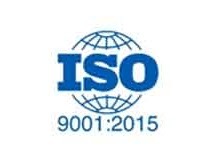
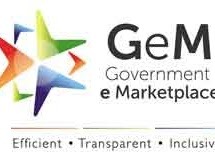
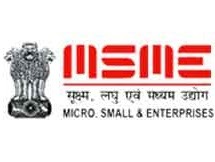
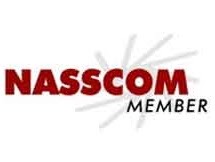
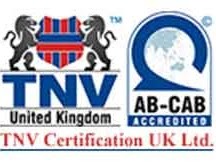
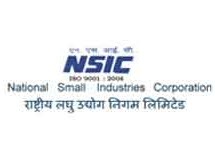
Almost for all the Defense labs and production agencies, we have designed, developed, and installed Interactive Electronic Technical Manual, or Electronic Technical Manual OR Technical Publications (IETP). All these terms refer to IETM Documentations.
We are proud to deliver ARMY IETMs, NAVY IETMs, and Air force IETMs in various cities of INDIA.
We have executed the IETM and CBT projects of OEMs having production centers pan INDIA, in Hyderabad(DRDO, ASL, RCI, BDL, ECIL, BEL) Vishakapatnam, Vizag(HSL), Chennai, Coimbatore, Tamilnadu (ADU, APTARA), Maharashtra, Mumbai(L&T, TATA), Pune(L&T, TATA, Kirloskar), Delhi (SBI, GNU, GIZ, NTPC), Cochin (TIL), Goa(Marine electrical), Kolkata(TIL, Kolkatta University), Bhopal, Utter Pradesh, Lucknow, Noida(SBI, UGC), Gujarat, Surat (PIRAMAL, ANSA DECO), Gandhi Nagar (BOB, INFLIBNET), Kerala, Trivandrum, Bangalore(BEL, Canara Bank, TALLY), Pondicherry(Integra), Gopalpur Cantonment, Odisha (Army AD College).
Proud to be associated with OEMs supplying defense equipment for ARMY, NAVY, and AIR FORCE.
We have developed IETM Framework using open source software hence, no proprietary or licensed software is required to play IETM Viewer, either in Windows Operating systems or in Linux Operating system. The installation process is also very simple and these electronic manuals can be viewed using all the major browsers and all the standard devices i.e. mobiles, tabs, and different size monitors, etc.
Download IETM presentation having information such as “IETM Architecture”, “How to create”, “IETM format”, “S1000D standard”, “Information code list” and about “data module DM” and naming, etc from “download presentations” section of this web site. We have expertise in developing IETM in Indian Defense standard JSG 0852 or European aviation standard S1000D.
We are not JUST a Vendor or Service Provider or S1000D Developers or IETM software developers but we are your trusted partner in the execution of the projects.
Ask for a Live Demo and walkthrough of the IETM software and get the Best quotation to execute the project – [email protected] or call 09849527706
We need information i.e.
how many pages are to be converted (It means what is the volume or page count of all the manuals which you have prepared).
What is the standard asked for? Indian Standard or S1000D?
About Company
Code and Pixels Interactive Technologies Private Limited (CNP) is an IT service provider based in Hyderabad (India).
Get in touch
09849527706
#IETM#S1000D#Code and Pixels#IETM Hyderabad#Interactive Electronic Technical Manual#What is Ietm Level 4#What is Ietm#Ietm Software#Ietm Developement
3 notes
·
View notes
Text
Nucleotides Market Analysis Report: Size, Share, and Trends Forecast for the Next Period

The Nucleotides Market Report for 2024 provides a comprehensive overview of the Nucleotides Market industry, presenting crucial data and insights into market dynamics, including growth drivers, challenges, and future potential. The report evaluates the Nucleotides Market Components, focusing on significant opportunities and trends that could shape the industry's trajectory. Key stakeholders such as CEOs, global managers, traders, and analysts will find value in the SWOT analysis, which assesses the competitive strengths, vulnerabilities, opportunities, and threats impacting market players.
According to Straits Research, the global Nucleotides Market market size was valued at USD 608 Million in 2021. It is projected to reach from USD XX Million in 2022 to USD 1095 Million by 2030, growing at a CAGR of 7.63% during the forecast period (2022–2030).
Get a Sample PDF/Excel of report starting from USD 995 :https://straitsresearch.com/report/nucleotides-market/request-sample
Top Key Players of Nucleotides Market :
Ajinomoto Co. Inc.
CJ Cheiljedang Corp.
DAESANG
exoticbiosolutions.com
Jena Bioscience GmbH
Meihua Holdings Group Co. Ltd
Meridian
Star Lake Bioscience
Thermo Fisher Scientific Inc.
and more....
Key Insights from the Nucleotides Market Report
Market Size Overview: The report provides comprehensive estimates of the Nucleotides Marketsize, including value and sales volume, for the period.
Market Trends and Dynamics: An analysis of the key drivers, opportunities, challenges, and risks shaping the Nucleotides Market.
Global Economic and Regional Impact: Evaluation of the effects of global inflation and the Russia-Ukraine conflict on the Nucleotides Market.
Trade Flow Analysis: Detailed examination of import and export volumes of Nucleotides Marketacross major regions.
Industry Value Chain: Insight into the Nucleotides Marketvalue chain, covering raw materials, suppliers, manufacturing processes, distributors, and downstream customers.
Industry News, Policies, and Regulations: Coverage of the latest developments, policies, and regulations impacting the Nucleotides Market.
Regional Analysis for Nucleotides Market:
The regional analysis section of the report offers a thorough examination of the global Nucleotides Market market, detailing the sales growth of various regional and country-level markets. It includes precise volume analysis by country and market size analysis by region for both past and future periods. The report provides an in-depth evaluation of the growth trends and other factors impacting the Nucleotides Market market in key countries, such as the United States, Canada, Mexico, Germany, France, the United Kingdom, Russia, Italy, China, Japan, Korea, India, Southeast Asia, Australia, Brazil, and Saudi Arabia. Moreover, it explores the progress of significant regional markets, including North America, Europe, Asia-Pacific, South America, and the Middle East & Africa.
Nucleotides Market Segmentations:
By Nitrogenous Base
Pyrimidine
Purine
By Application
Pharmaceuticals
Food and Animal Feed Additives
Drug Discovery
Get Detail Market Segmentation :https://straitsresearch.com/report/nucleotides-market/segmentation
Unit Economics must be known by C-suite professionals:
Cost of Goods Sold (COGS): Includes material, labor, and overhead costs in manufacturing.
R&D Costs: Investment in innovation and compliance with regulations.
Engineering and Design Costs: Resources for design, prototyping, and meeting technical standards.
Production Costs: Specialized manufacturing and quality control expenses.
Supply Chain Costs: Managing procurement and logistics for specialized components.
Testing and Quality Assurance: Costs for ensuring product safety and reliability.
SG&A Costs: Marketing, sales, and administrative expenses.
Revenue per Unit: Income from contracts, services, and licensing.
Gross Margin: Revenue minus COGS, showing unit profitability.
Break-even Analysis: Units or contracts needed to cover total costs.
Customer Acquisition Cost (CAC): Costs to secure new contracts.
Lifetime Value (LTV): Total revenue from a customer over time.
Capital Expenditure (CapEx): Investments in facilities and technology.
Economies of Scale: Cost reductions in larger production runs.
Profit Margin: Final profit after all expenses.
Top Reasons to Choose This Report
Access to Comprehensive Insights: Gain access to extensive analysis, research, and data that are often challenging to gather independently. This report provides valuable information, saving you significant time and effort.
Support for Informed Decisions: Enhance your decision-making process with in-depth insights into market trends, consumer behavior, and key industry factors. This report is essential for strategic planning, including investments, product development, and marketing strategies.
Gain a Competitive Edge: Stay competitive by understanding market dynamics and competitor strategies. The report provides detailed insights into competitor performance and market trends, helping you craft effective business strategies.
Cost-Effective Research Solution: Save on research costs by investing in this report, which offers a detailed and comprehensive analysis of the market. This cost-effective option eliminates the need for extensive independent research.
COVID-19 Aftermath and Geopolitical Influences: Russia-Ukraine Conflict and Middle East Crisis
The report explores the multifaceted impact of COVID-19 on the Nucleotides Market market, covering both direct and indirect effects across global and local levels. It discusses market size, trends, and growth trajectories in the Nucleotides Market , classified by type, application, and customer sector. Additionally, it provides a detailed evaluation of market development components before and after the pandemic, supported by a PESTEL analysis to assess key influencers and barriers to market entry. We offer the flexibility to customize the report based on specific regions, applications, or any other statistical details. Our goal is to align our analysis with your specific needs, ensuring a more complete market study. The final report will also examine the impact of the Russia-Ukraine War on the Nucleotides Market market, assessing how these geopolitical events are influencing current market conditions and future opportunities.
This Report is available for purchase on :https://straitsresearch.com/buy-now/nucleotides-market
About Us:
Straits Research is a leading research and intelligence organization, specializing in research, analytics, and advisory services along with providing business insights & research reports.
Contact Us: email: [email protected] Address: 825 3rd Avenue, New York, NY, USA, 10022 Tel: +1 646 905 0080 (U.S.) +91 8087085354 (India) +44 203 695 0070 (U.K.)
#Nucleotides Market#Nucleotides Market Share#Nucleotides Market Size#Nucleotides Market Research#Nucleotides Industry#What is Nucleotides?
0 notes
Text
Black Rice Paddy price in India what is price of Black Rice FSSAI Publication Fssai ,Food License Registration India FSSAI Home FSSAI License - ILAI Consultancy Services FSSAIcompliance FSSAILICENSE INDIA The Agricultural and Processed Food Products Export Development Authority (APEDA) Teaboard Silchar Teaboard STGDD Bangladesh TeaBoard Organic
#blackrice #joharice #basmatirice #clove #ghostpepper #turmeric #ginger #cardamom #cassia #cassiaroll #cinnamonroll #dalchini #blackrice #cardamom #cassia #pepper #spices #organic #organicginger #birdeye #cardamom #bhutjolokia #ceylon #gurunanakjayanti #dalchini #clove #lokhandi #pineapple #chilkalokhandi #gorbale #ixorabrachiata #dalchiniwholesalemarket #tejpata #cardamom #blackrice #chili #tejpata #pepper #clove #bayleaf #birdeye #longimirch #cardamom #perilla #sarpagandha #cardamom #pepper #cassia #cinnamon #dalchini #ghostpepper #bhutjolokia #nagakingchilli #blackrice #bambooshoot #stoneflower #staranise #patharphool #broomgrass #grassbroom #bireyechilli #Longimirch #tejachili #chiliflakes #turmeric #ginger #dryturmeric #dryginger #sonamasoori #ir64rice #redrice #whitestickyrice #joharice #akhuni #kiwi #mustardseeds #fssai #apeda #teaboardindia #organicspices #organicagriculture #organicfarming #organicchillitrading #organicginger #organicturmeric #organicflakes #organickiwi #kiwi #organicardamom #organicbayleaf #organictejpata #bayleaf #tejpata #nikenterprise #abhijitroy #APEDA #FSSAI #FssaiRegistration #fssailicense #fssailicenseregistration #fssaiapproved #fssaiindia #teaboard #organicindia #organicharvest
Nik Enterprise is a Pan India Company.
For More Information:
Call 9612237920
Whatsapp 9612237920
Whatsapp https://wa.me/qr/BJO7IE4EPOZWC1
email [email protected]
Facebook https://www.facebook.com/nikenterprisee
LinkedIn https://www.linkedin.com/company/nikenterprise/
Twitter https://twitter.com/nikenterprisee
Koo https://www.kooapp.com/profile/nikenterprise
Instagram https://www.instagram.com/nikenterprisee/
Indiamart https://www.indiamart.com/nik-enterprise-dimapur/
Quora https://www.quora.com/profile/Nik-Enterprise-3
Pinterest https://in.pinterest.com/nikenterprise/
medium https://medium.com/@nikenterprise
0 notes
Text
Thermo Fisher Scientific, a global leader in scientific research services, is seeking a talented Regulatory Affairs Specialist to join their remote team in India. This is a perfect opportunity for professionals with a background in regulatory science, especially M.Sc. graduates, to contribute to life-changing therapies and innovations. With a fully remote work setup, you can make a significant impact while working from the comfort of your home. About Thermo Fisher Scientific: At Thermo Fisher, we are committed to enabling our customers to make the world healthier, cleaner, and safer. Our work spans across laboratory research, clinical trials, and regulatory affairs. The Regulatory Affairs team plays a critical role in accelerating product development and ensuring compliance with global regulations. If you are passionate about science and regulatory standards, this role could be a great fit for you. Job Role: Regulatory Affairs Specialist As a Regulatory Affairs Specialist at Thermo Fisher, you will be responsible for ensuring regulatory compliance across clinical trials and product development. Working within our PPD® clinical research portfolio, you will provide regulatory expertise and guidance to clients, assisting in the preparation of documentation, submissions, and project management. Location: Remote, India Job Type: Full-time Category: Clinical Research Work Schedule: Monday to Friday (Standard hours) Job ID: R-01285926 Key Responsibilities: Supports the preparation of documentation and submissions under guidance. Coordinates and manages client deliverables supporting regulatory compliance. Liaises with internal and external clients in the tracking and status update of project plans and overall support of projects. Assists with project budgeting/forecasting. Maintains knowledge and understanding of SOPs, client SOPs/directives, and current regulatory guidelines. Assists in business development and pricing of projects for the department. Evaluates client needs in relationship to overall project timelines, quality and delivery. Engages other project team members, functional units and/or management as necessary to deliver final product, and resolve/mitigate identified issues or barriers to delivery as needed. Knowledge, Skills, Abilities Good English language (written and oral) communication skills as well as local language where applicable Good attention to detail and quality as well as editorial/proofreading skills Good interpersonal skills to work effectively in a team environment Good computer skills including the use of Microsoft Word, Excel, Power Point; capable of learning new technologies Basic organizational, time management, and planning skills to create and follow timelines, conduct long-range planning, adapt to changing priorities and handle multiple projects Good negotiation skills Capable of working independently with direction and exercising independent judgment Capable of independently assessing sponsor regulatory needs and working with project team members in producing compliant deliverables Basic knowledge of global/regional/national country requirements/regulatory affairs procedures for clinical trial authorization, licensing, lifecycle management Basic understanding of medical terminology, statistical concepts, and guidelines Good analytical, investigative and problem-solving skills Capable of interpreting data [caption id="attachment_107789" align="aligncenter" width="640"] Work from Home Regulatory Affairs Specialist Hiring | Thermo Fisher[/caption] Qualifications: Educational Background: Bachelor's degree or higher (preferably in life sciences or related fields such as M.Sc.). Experience: Minimum of 2 years of relevant experience in regulatory affairs, ideally within clinical research or pharmaceuticals. Why Thermo Fisher? Thermo Fisher offers an inclusive work culture that values diversity and empowers individuals to contribute their unique perspectives.
This role is ideal for candidates looking to work remotely while contributing to a dynamic, innovative global team. You'll have the chance to engage in clinical research projects that positively impact patient outcomes and make a real difference in the world. How to Apply: Interested candidates can apply directly through the official Thermo Fisher career portal. Apply Here
0 notes